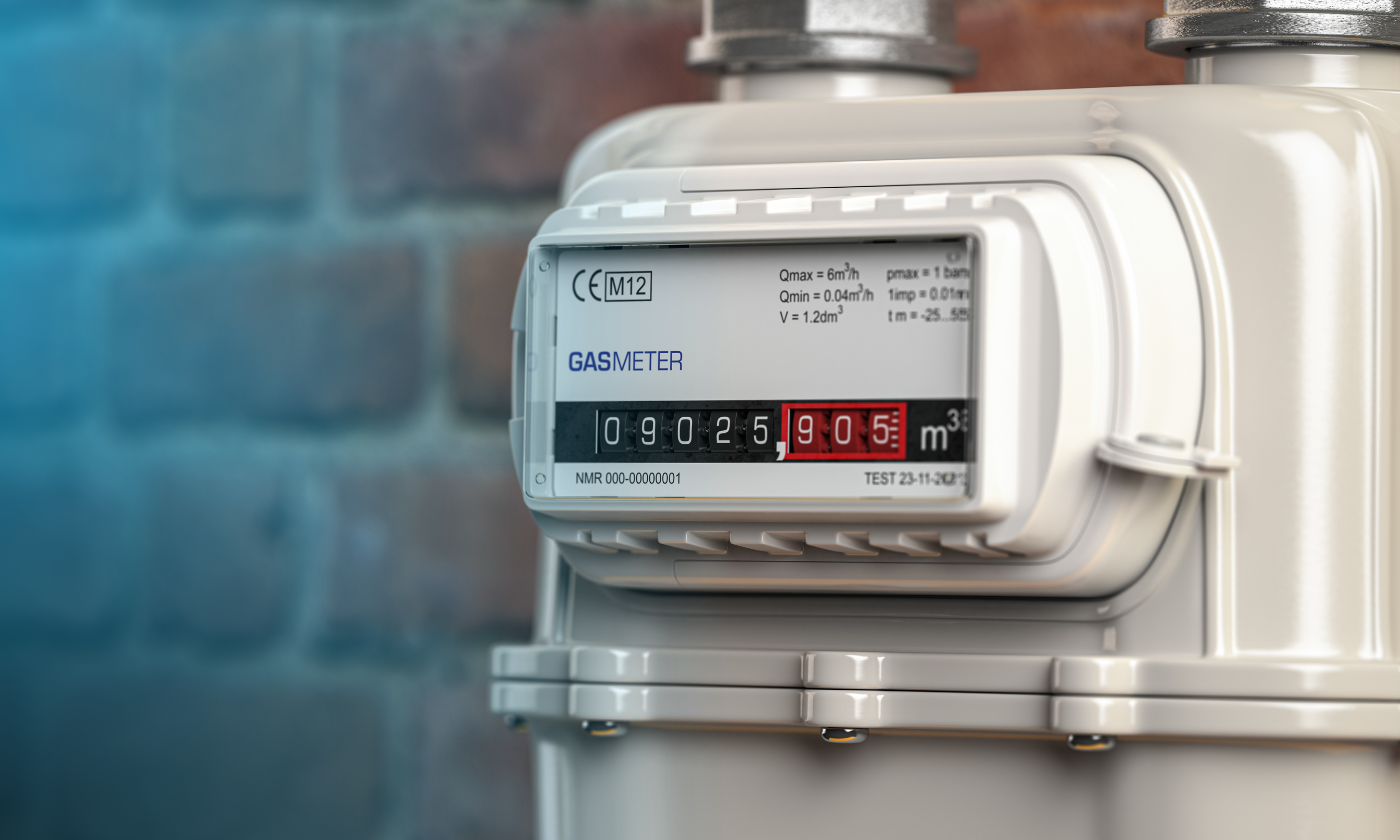Owning rental real estate can be lucrative, but it is also hard work—finding tenants is just the beginning. Keeping the tenants safe is also a huge priority. Landlords and property managers have an extensive management to-do list that they must constantly maintain.
Maintenance is a necessity. One mandatory item on that list is ensuring that your building is equipped with the right natural gas detector to prevent potential gas leaks or other related hazards.
Natural gas is often considered the safest and cleanest fossil fuel, making it popular for residential and commercial applications. However, a natural gas leak can pose a serious threat to the safety of occupants and the property itself. Detecting natural gas leaks before they become hazardous is necessary to protect residents. Selecting a natural gas detector can be a daunting task. There are many different types and models available, so it is your responsibility as a property manager to make the right decision.
Understanding what suits your needs is crucial to make an informed decision for your property.
Let’s explore some essential factors that you, as a property manager, should consider when selecting a natural gas detector for your properties.
Key Features For Natural Gas Alarms:
- Battery Powered - If your alarm needs to replace the batteries (quarterly, annually, etc.), you can add another expense and annoyance to your to-do list. You won’t need to deal with it if you purchase a battery operated natural gas detector with a minimum 6-year guaranteed battery life to charge with a warranty included.
- 10% LEL (Lower Explosion Limit) – The Lower Explosion Limit is a very important natural gas measurement to indicate how flammable the environment is. The lowest percentage concentration of a gas or vapor in the air capable of producing a flash of fire with the ignition source (arc, flame, heat) is Zero percent Lower Explosive Limit (0% LEL), reflecting a gas-free atmosphere. One hundred percent lower explosion limit (100% LEL) shows an atmosphere where gas is at its lower flammable limit. The relationship between percent LEL and percent by volume vary from gas to gas. In concentrations of 0-5% Methane in the air, the mixture is too lean to ignite or burn. Methane concentrations between 5% and 17% are highly flammable. DeNova Detect gas alarms are set to detect at a 10% LEL before the environment becomes flammable, which allows for more escape time.
- Fastest Escape Time – The DeNova Detect natural gas alarm has been proven to alert 11 minutes faster on average compared to competitor alarms.
- No Plug-In – The only other options besides a 100% battery-powered alarm are corded or plug-in alarms. These antiquated devices alert you to gas leaks much later than a battery-powered detector that does not require an electrical outlet to function. Not to mention, with a plug-in or corded alarm, there are hidden electricity costs. DeNova Detect alarms can be placed near the ceiling, another key feature for natural gas alarms.
- Can Be Mounted 12” From The Ceiling – Natural gas is lighter than air and rises and accumulates near the ceiling. Therefore, any plug-in or corded alarm will not alert you to natural gas leaks as fast as you need to be notified. In fact, by the time the natural gas leak sinks to the outlet, it may be too late. Make the smart choice when it comes to your family’s safety and invest in a battery-powered alarm, such as the DeNova Detect natural gas alarm that allows for easy installation near the ceiling, as recommended by the NFPA 715 Standard.
- Lowest True Cost Of Ownership – If you calculate the need to replace the batteries and the electricity each year for a plug-in natural gas alarm, the price tag could be $200 over the life of the detector versus a fully battery-operated alarm that does not need electricity or additional batteries for its life term. DeNova Detect offers a fully battery-powered alarm with no extra hidden fees such as electricity or battery costs.
- Nuisance Resistant – False alarms are a common occurrence with certain natural gas alarms, so it’s vital to do your research and go with a natural gas alarm that has proven to be resistant to false alarms through third-party testing and field deployments. The last thing you want is to have the annoyance of false, unnecessary alarms. The DeNova Detect natural gas alarm is one you can trust to only alert you of natural gas leaks.
- New Sensing Technology – MEMs sensor technology is a superior technology that offers 600 times more power-saving energy than competitors. DeNova Detect is the only natural gas alarm that uses this technology in the US. This miniature sensor is jam-packed with effectiveness, sensing only natural gas and removing false alarms for added peace of mind.
- Field Testing – When doing your due diligence, see how many of the alarms you’re interested in have been deployed in the field. If the alarm is not used on a grand scale, there’s no real-world testing to see its durability and resilience over time. DeNova Detect has sold over 70 million alarms worldwide and successfully deployed over 200,000 in the US with virtually zero false alarms in the field. Plus, the Gas Technology Institute (GTI) also conducted an independent test revealing no false alarms when tested against 20 typical household chemicals that would historically set off competitor alarms. That’s what you need to feel safe.
Related post: What Property Managers Need to Know About Natural Gas
Natural Gas Alarm Specs Every Property Manager Should Consider
Every natural gas alarm has clearly defined functions and characteristics, each offering unique benefits. Therefore, there are a few details to review before selecting the gas detector that suits you best.
- Battery Life: Test your detectors monthly—some devices are sealed units and must be replaced entirely when the battery fails. Natural gas leak detectors also come with an expiration date (usually five to ten years,) so consider replacing them beforehand. Ensure your gas detector has an indicator so you know it is powered.
- Listed to UL-Listed 1484 Standard: For peace of mind, ensure that your gas leak detector functions correctly and reflects the UL-listed mark to indicate that it has been tested and meets the necessary safety standards.
- The Number of Natural Gas Alarms: One natural gas alarm won’t be enough for the entire property, but you must determine how many gas appliances you have and the radius of your alarm to learn how many you’ll actually need. NFPA715 recommends installing at least one gas alarm in every room with a gas appliance.
- Alarm Installation: Although it is important to install natural gas alarms in rooms where gas appliances exist, it is recommended that gas detectors be placed as far away from these appliances as possible. The alarm should be installed between 3 and 10 feet from a gas appliance and no more than 12 inches from the ceiling. The placement recommendations are intended to keep natural gas alarms at a reasonable distance from a gas source to reduce the “unwanted” false alarms that can occur.
And one final feature many don’t think about is smart home integration. If there are already smart home devices on the property, you’ll want to check if your natural gas detectors can integrate with your smart home ecosystem and boost your residence’s security.
DeNova Detect + Amazon Sidewalk Compatibility
Our DeNova Detect smart natural gas detector is the first Amazon Sidewalk-enabled gas alarm, allowing other home devices to communicate with each other, including the natural gas alarm, and keep you in the know. With Amazon Sidewalk’s Bluetooth LE and 900 MHz LoRa technology, compatible, low-powered devices like Echo dots, Echo Assistants, Tile trackers, etc., can connect using little bandwidth. Even better, compatible devices outside the home network can connect, ensuring you know what’s happening wherever you are.
Because natural gas leaks have flown under the radar for so long and can turn into bigger problems down the line, it is vital to have an active and sensitive alarm in place so you can catch the leak as soon as possible. DeNova Detect can send alerts in an emergency by letting information pass from one low-powered device to another within the Amazon Sidewalk network, increasing the range without significantly impacting battery life as the data reaches its destination.
Related post: How to Make Your Smart Home More Intelligent With the Right Natural Gas Alarm
Natural gas alarms are not the first device to come to mind when considering safety, but they’re necessary to ensure your property and occupants are protected and safe during an emergency.
We are happy to connect with you in your journey of securing your home and continuing to invest in the safety of your property. Feel free to email us at info@denovadetect.com or visit the Denova Detect website.





Leave a comment
This site is protected by hCaptcha and the hCaptcha Privacy Policy and Terms of Service apply.